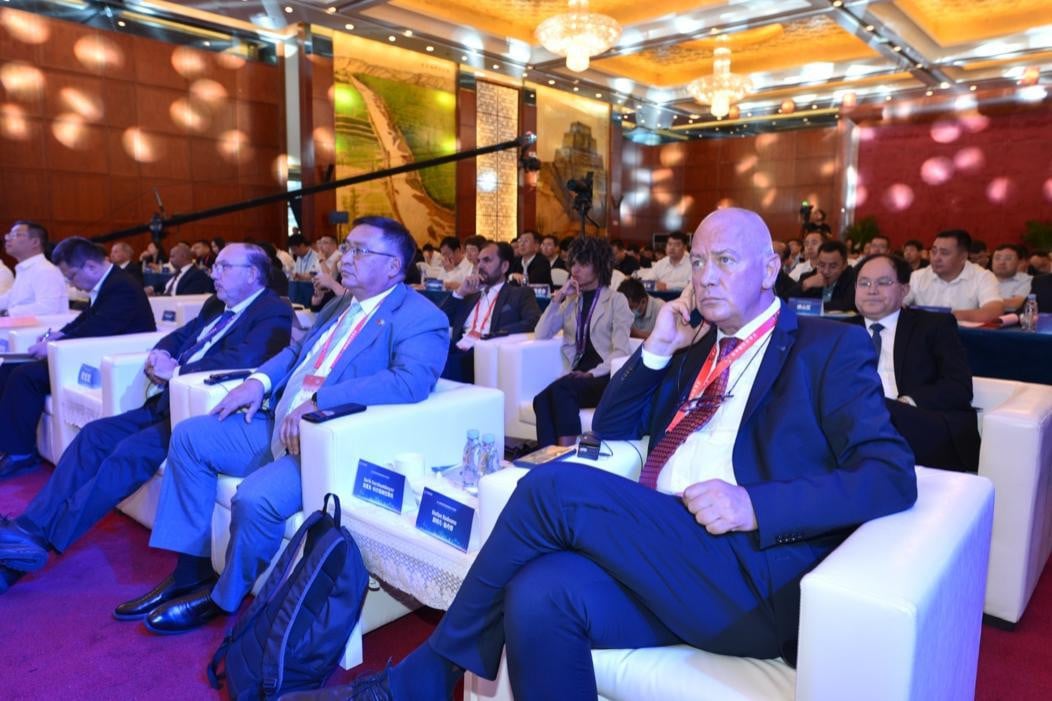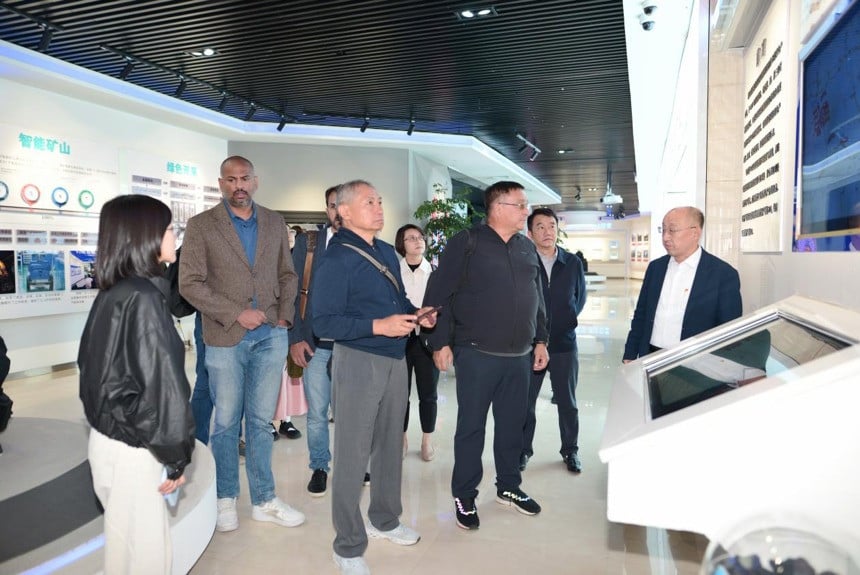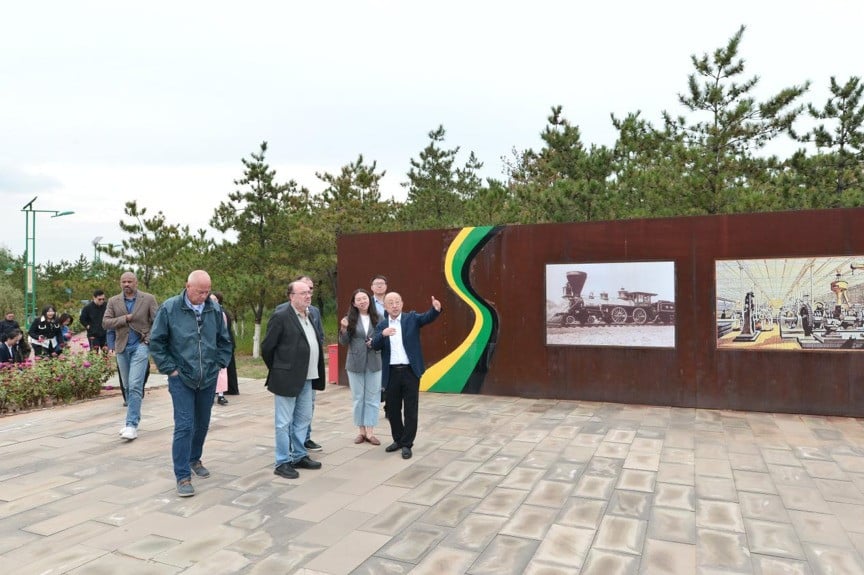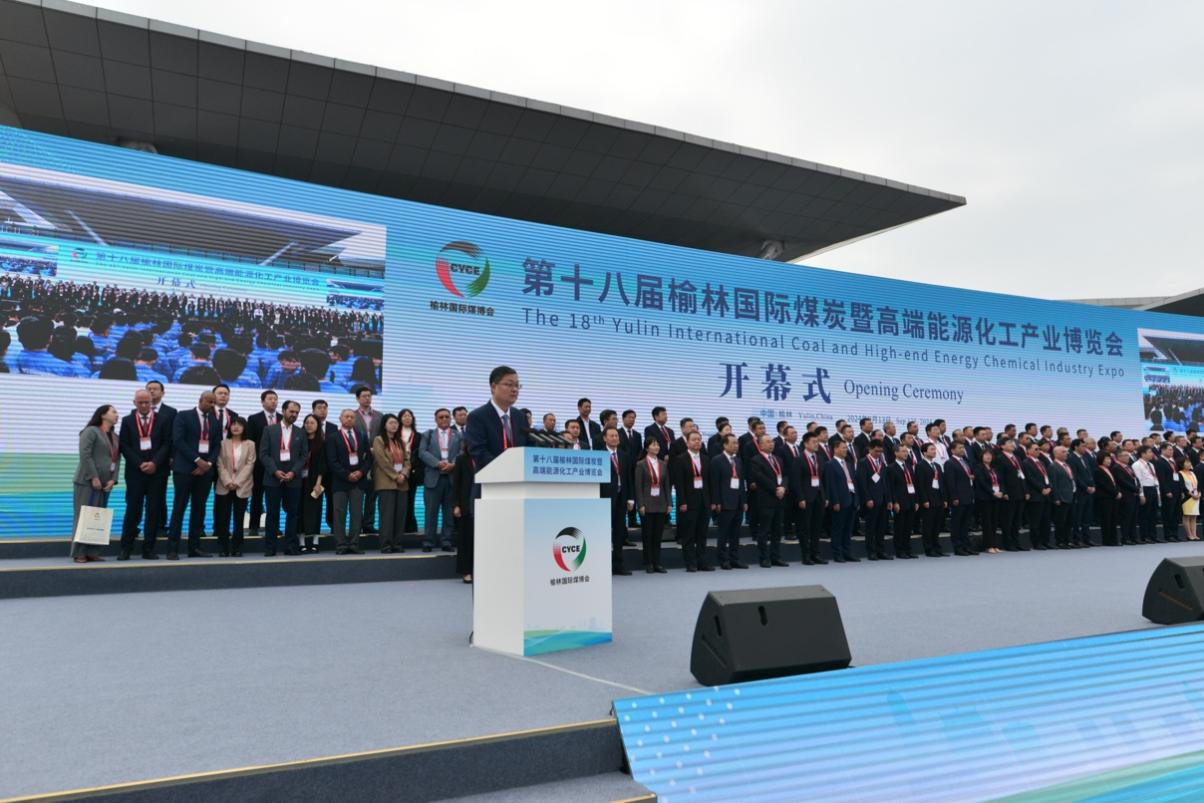YULIN: A team of more than ten foreign media executives and journalists from countries, including Spain, Romania, Kazakhstan, Vietnam, Pakistan, Cuba, and Sri Lanka were recently taken on a tour in which they had seen glimpses of ancient and modern China. The weeklong series of tips showcased China’s advancements in green energy and cultural heritage, highlighting its commitment to innovation and ecological sustainability.
On Sept 14, the delegates from prominent international media outlets visited Shendong Coal Group, part of CHN Energy Investment Group, located in Yulin, northwestern Chinese province of Shaanxi. They commended Shendong Coal as a leader in smart green development within the global coal industry. With 13 modern, efficient mines — including China’s first coalmine with a single capacity of 200 million tons — the company has set a benchmark in safety and production efficiency.
Gao Huiwu, a senior executive at Shendong, briefed the delegation on their “0587” intelligent coalmine development goals, which incorporate unmanned operations to enhance both output and safety. Isaura Diez Millan from the Latin American News Agency said that her visit reshaped her perception of Chinese coalmines, previously viewed as hazardous environments.

The delegation also observed the transformation of the Halagou subsidence area into an ecological demonstration site, showcasing Shendong’s model that balances economic development with environmental restoration. Naveed Hussain, Chief Editor of Express Tribune in Pakistan, praised this approach, calling it a role model for global companies. Similarly, Stefan Radeanu of Romania noted that Shendong’s practices could inform the energy transitions underway in many countries.
From Sept 12 to 14, the media delegation delved into Yulin culture, visiting the Northern Shaanxi Folk Song Museum, which celebrates the rich tradition of local folk songs through immersive performances and exhibits. Serik Korzhumbayev, Editor-in-Chief of Delovoy Kazakhstan, stressed how music can convey cultural heritage across generations. They also participated in a paper-cutting workshop at an intangible cultural heritage exhibition, facilitating deeper cultural understanding.

The delegation also toured the Shimao Museum, home to artifacts from an archaeological site dating back 4,000 years. Yasiru Bandara Ranaraja, Director of the Belt & Road Initiative in Sri Lanka, marveled at the sophisticated agricultural and cultural practices of ancient civilisations, reinforcing the importance of preserving such heritage.
On Sept 11, the delegation visited Xifeng Group, a renowned Baijiu producer in Baoji City. They observed the innovative brewing processes where industrial robots enhance production efficiency.
Ranaraja highlighted that automation has significantly reduced bottling time, allowing for an impressive annual output. The cultural hall of Xifeng Group provided insights into the liquor’s storied history, further bridging connections between China and the world.
The 18th Yulin International Coal and High-end Energy Chemical Industry Expo, held on September 13, showcased advancements in the energy sector, drawing over 800 exhibitors. The foreign media delegation expressed strong interest in the exhibited technologies and equipment, noting the event’s emphasis on green energy transition. According to Korzhumbayev, this highlights China’s achievements in ecological protection.

Isaura Diez Millan remarked on China’s innovative strategies in pursuing dual carbon goals, while Radeanu emphasized the significance of China’s proactive measures for other nations seeking similar transitions.
These visits underscore the foreign media’s recognition of China’s dedication to sustainable development and cultural preservation, demonstrating the country’s evolving role on the global stage. As China continues to innovate and lead in these fields, it sets an inspiring example for the world in achieving ecological balance and cultural enrichment.


No comment